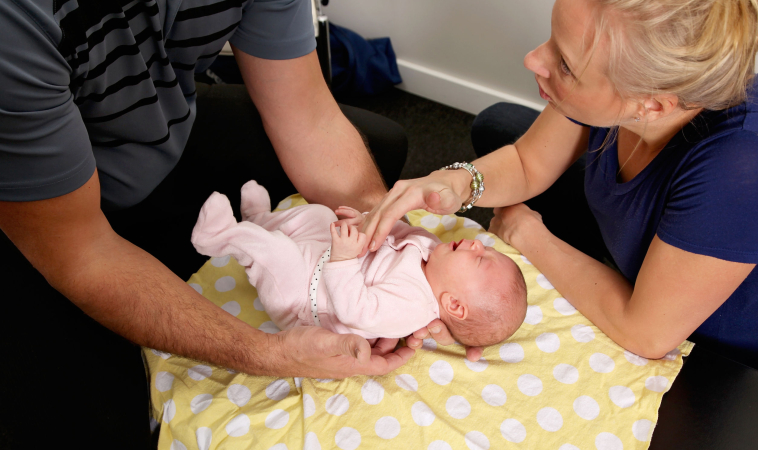(NaturalPath) New research, released by the International Osteoporosis Foundation, has discovered that increasing frequency of physical activity therapy in premature infants, further improves the benefits in bone strength.
Premature infants often endure many health concerns early in life, and need various therapy interventions. One of these health concerns is poor bone strength and development, which can then put them at a higher risk for osteopenia later in life. Physical therapy interventions are implemented in infancy in order to improve bone density and strength.
Researchers recruited 34 very low birth weight (VLBW) preemies in order to study the effects of variation in physical activity frequency on bone strength. Participants were randomly selected for one of three groups. One group received physical activity twice a day, another group only once a day, and the control group received no physical activity therapy. The average birth weight of the infants was 127 grams, and the average gestational age was 28.6. Exercise began around eight days after birth, and continued for a four-week period. Measurements to assess bone health were conducted at baseline, and then at two, and four weeks into treatment. In order to objectively assess bone health, ultrasounds were used to measure density changes in the tibia bone.
Results from the study showed that the infants in the twice-daily physical activity group saw a decreased rate of bone mass decline, when compared to the other two groups. It appeared that there was a dose-response relationship, as infants receiving physical activity once daily also saw a decreased rate of decline when compared to the control group. It is unclear if twice daily is the optimal dose for physical exercise, however, it was determined that more benefits in bone strength were seen with twice daily exercise, when compared to once daily. There were no added safety concerns with the twice-daily exercise.
This study emphasizes the importance of physical activity in order to improve bone strength in premature infants.
 Razi Berry, Founder and Publisher of Naturopathic Doctor News & Review (ndnr.com) and NaturalPath (thenatpath.com), has spent the last decade as a natural medicine advocate and marketing whiz. She has galvanized and supported the naturopathic community, bringing a higher quality of healthcare to millions of North Americans through her publications. A self-proclaimed health-food junkie and mother of two; she loves all things nature, is obsessed with organic gardening, growing fruit trees (not easy in Phoenix), laughing until she snorts, and homeschooling. She is a little bit crunchy and yes, that is her real name.
Razi Berry, Founder and Publisher of Naturopathic Doctor News & Review (ndnr.com) and NaturalPath (thenatpath.com), has spent the last decade as a natural medicine advocate and marketing whiz. She has galvanized and supported the naturopathic community, bringing a higher quality of healthcare to millions of North Americans through her publications. A self-proclaimed health-food junkie and mother of two; she loves all things nature, is obsessed with organic gardening, growing fruit trees (not easy in Phoenix), laughing until she snorts, and homeschooling. She is a little bit crunchy and yes, that is her real name.
Reference:
Ita Litmanovitz, Hedva Erez, Alon Eliakim, Sofia Bauer-Rusek, Shmuel Arnon, Rivka H. Regev, Gisela Sirota, Dan Nemet. The Effect of Assisted Exercise Frequency on Bone Strength in Very Low Birth Weight Preterm Infants: A Randomized Control Trial. Calcified Tissue International, 2016; DOI: 10.1007/s00223-016-0145-3
















